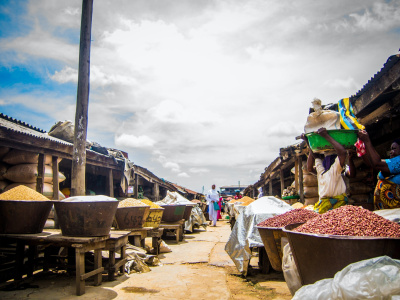
Africa's Regional Integration Arrangements: History and Challenges
Walter Kennes and Tesfaye Dinka provide an overview of regional integration in Africa. They look at the history, challenges at country and regional levels, and linkages between the regions and the global economy.
Background
From the dawn of the independence era, virtually all African countries have embraced regionalism. This commitment to regionalism was part and parcel of the broader aspiration of continental integration, a vision that led to the creation of the Organisation of African Unity (OAU) in 1963. The recent transformation of the OAU into the African Union (AU) has significantly strengthened the movement towards the goal of Pan-African political and economic union. However, the new setup at the continental level leads to the question of how the regional and sub-regional initiatives and the AU can become mutually reinforcing.
In addition to the regional initiatives within Africa there have been proposals and actual negotiations aimed at establishing North-South integration arrangements between Africa and developed countries or regions. These include the Economic Partnership Agreements (EPAs) presently being negotiated between four groups of African countries and the European Union (EU). At the global level, almost all African countries became members of the World Trade Organization (WTO) or applied for membership.
Purpose of ECDPM study
Against this background, this discussion paper provides a brief summary of the history of regional integration in Africa and a thematic review of the constraints at country and regional levels that determine the progress (or lack thereof) of regional integration, and lastly, discusses the linkages between the regions and the global economy.
Key findings
- Integration organisations have been established in all regions of Africa. However, it is necessary that a number of constraints and obstacles at the regional level be removed if the full potential of integration is to be realised.
- Principal issues to be focused on at the regional level include the need to address multiplicity and overlap of institutions through rationalisation, sustainable financing of operations and programmes, the pace of implementation of the trade integration agenda, other regional programmes and opportunities, and the need to reconcile national and regional interests.
- The creation of sizeable regional markets in Africa opens the way for entry into mutually beneficial cooperative arrangements with the North such as envisaged with the EPAs and more generally for successful integration into the world market.
- Regionalism makes it possible to increase competitiveness and skills in the regional market before being confronted with competition at global level.
- Regional integration organisations can help achieving more effective participation of African countries in the world trading system. This will increase the chances that new trade rules are in the interest of the African countries.

